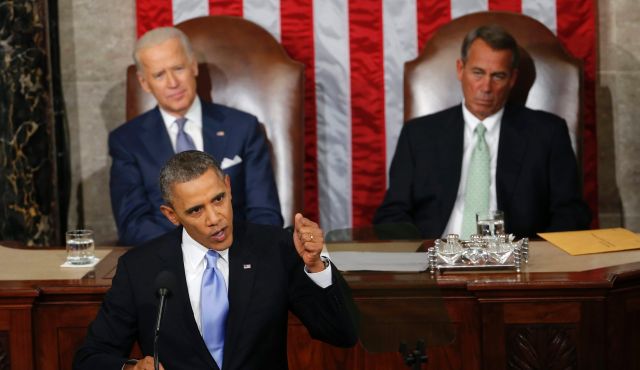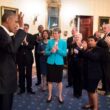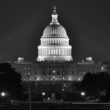The American Israel Public Affairs Committee (AIPAC) would have been much better off if the snowstorm that blanked Washington, D.C., at the beginning of March had forced their annual “policy conference” to be cancelled.
That didn’t happen. Instead, it took place and accomplished nothing for the powerful lobby, except to demonstrate how much it has declined in the past year.
And that is thanks to President Barack Obama who entered negotiations with Iran over its nuclear program over AIPAC’s strong opposition and, when AIPAC tried to scupper negotiations by getting Congress to enact new sanctions on Iran, said that he would veto them.
Obama issued his veto threat in his State of the Union address. And he did so by invoking “our national security.” When the president said an AIPAC initiative put someone else’s security above that of the United States, AIPAC had little choice but to fold.
When the president said an AIPAC initiative put someone else’s security above that of the United States, AIPAC had little choice but to fold.
The day after the address, Democrats were taking their names off the Iran sanctions bill being promoted by AIPAC. Senate Majority Leader Harry Reid came out in opposition and, by the end of the week, AIPAC itself announced that it was no longer pushing for its passage. This was the worst defeat AIPAC had ever experienced, a defeat that suggested that its clout was something of an illusion.
(This can be overstated. AIPAC remains powerful because legislators depend on the campaign contributions it sends their way. And legislators will still roll over for AIPAC, but not when a president takes them on directly.)
AIPAC’s surrender on sanctions made its March conference all the more important for rebuilding its image of invincibility. But the opposite happened.
The whole was a subdued affair and, unlike previous years, it was mostly ignored by the media. Yes, the usual numbers of House and Senate members were in attendance, not to mention 14,000 AIPAC members.
But the old oomph was gone. Even though virtually everyone in attendance was furious at Obama, they were clearly under instructions not to make their antipathy known. The two speakers representing the White House, Secretary of State John Kerry and Secretary of the Treasury Jacob Lew, were received politely, even when they praised their administration’s plans to negotiate with Iran and to mediate between Israelis and Palestinians.
Although the audience preferred keynote speakers Senators Chuck Schumer and Bob Menendez who breathed fire on the subject of Iran, no Obama-bashing was heard from the dais. Clearly, AIPAC does not want to antagonize this president any more. They fault him for insufficient toughness with the Iranians and Russians, but no one at AIPAC views him as weak on AIPAC.
The final two indications that AIPAC knows that it is losing came when it sent its members up to Capitol Hill to ask legislators to sign a letter supporting Benjamin Netanyahu’s demands on Iran. Not a bill. A letter! Small beer.
And then there was Netanyahu’s speech. Israel’s Prime Minister said nothing he hadn’t said before. He praised the president and secretary of state. And he devoted 25 percent of his speech (this was the part that got the audience cheering) to denouncing the college-campus Boycott, Divestment and Sanctions movement against Israel. Which was as if Lyndon Johnson had delivered a major foreign policy speech in 1967 and blamed his Vietnam problems on the Students for a Democratic Society.
In short, AIPAC’s annus horribilis continues with no signs of a change in its fortunes anytime soon. Even if the Republicans take the Senate in November, the Israel advocacy group founded the year LBJ assumed the presidency will still have Obama to contend with. With little likelihood that the next president will be a Republican, AIPAC’s glory days may be behind it.
This is good news both for the United States—and Israel, which badly needs a real friend in the White House, one who will actually say “no” to the Israeli right’s endlessly bellicose plans.
In Obama, they have one.
M.J. Rosenberg was most recently a Foreign Policy fellow at Media Matters For America. Previously, he spent 15 years as a Senate and House aide. Early in his career he was editor of AIPAC’s newsletter Near East Report. From 1998-2009, he was director of policy at Israel Policy Forum.






